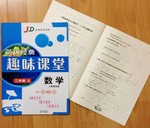题目内容
Have you winterized your horse yet? Even though global warming may have made our climate more mild, many animals are still hibernating(冬眠) .It’s too bad that humans can’t hibernate. In fact, as a species, we almost did.
Apparently, at times in the past , peasants in France liked a semi-state of human hibernation . So writes Graham Robb, a British scholar who has studied the sleeping habits of the French peasants. As soon as the weather turned cold people all over France shut themselves away and practiced the forgotten art of doing nothing at all for months on end.
In line with this, Jeff Warren, a producer at CBC Radio’s The Current, tells us that the way we sleep has changed fundamentally since the invention of artificial(人造的) lighting and the electric bulb.
When historians began studying texts of the Middle Ages, they noticed something referred to as “first sleep”, which was not clarified, though. Now scientists are telling us our ancestors most likely slept in separate periods. The business of eight hours’ uninterrupted sleep is a modern invention.
In the past , without the artificial light of the city to bathe in, humans went to sleep when it became dark and then woke themselves around midnight. The late night period was known as ”The Watch” It was when people actually kept watch against wild animals ,although many of them simply moved around or visited family and neighbours .
According to some sleep researchers, a short period of insomnia(失眠) at midnight is not a disorder .It is normal . Humans can experience another state of consciousness around their sleeping, which occurs in the brief period before we fall asleep or wake ourselves in the morning .This period can be an extraordinarily creative time for some people .The impressive inventor, Thomas Edison , used this state to hit upon many of his new ideas.
Playing with your sleep rhythms can be adventurous ,as anxiety may set in. Medical science doesn’t help much in this case. It offers us medicines for a full night’s continuous sleep, which sounds natural ; however, according to Warren’s theory,it is really the opposite of what we need.
67.The example of the French peasants shows the fact that________.
A. people might become lazy as a result of too much sleep
B. there were signs of hibernation in human sleeping habits
C.people tended to sleep more peacefully in cold weather
D. winter was a season for people to sleep for months on end
68. The late night was called “The Watch”because it was a time for people______.
A. to set traps to catch animals
B. to wake up their family and neighbours
C. to remind others of the time
D.to guard against possible dangers
69. What does the author advise people to do ?
A. Sleep in the way animals do.
B.Consult a doctor if they can’t sleep.
C.Follow their natural sleep rhythm.
D.Keep to the eight-hour sleep pattern.
70.What is the author’s purpose in writing the passage?
A.To give a prescription for insomnia.
B.To urge people to sleep less.
C.To analyze the sleep pattern of modern people.
D.To throw new light on human sleep.
【小题1】B
【小题2】D
【小题3】C
【小题4】D
解析:
【语篇解读】本篇文章为科学报道。文章的作者提出了一系列人们对于睡眠的固有认识的相左意见,比如他认为人也是有冬眠倾向的,失眠并不一定是一件坏事,像爱迪生这样的大科学家就是在晚间失眠的时候有了伟大的发明,不要借助医学介入睡眠等等。
【小题1】推理判断题。本题是对“论点—论据”的考查,即考查该事例用来证明何种观点。题干的关键词是example of the French peasants,回原文定位到第二自然段。该论据与第一自然段的论点之间有一个衔接过渡句,In fact, as a species, we almost did. 这里的did指代上文提到的hibernate,因此本题正确答案为B.
【小题2】细节理解题。由第五段The late night period was known as “The Watch”. It was when people actually kept watch against wild animas可知。.
【小题3】细节理解题。文章的最后一段告诉我们,不要依赖药物保持持续的睡眠,这是非自然的睡眠,要依照自然规律睡眠。作者说在第三段说The business of eight hours’ uninterrupted sleep is a modern invention,很显然对“八小时不间断睡眠”有不以为然的意味。排除D项,最后一段中的Medical science doesn’t help much in this case说明作者并不以为医生对失眠有所帮助,排除B,A项在文中则没有提及。
【小题4】推理判断题。纵观全文可知,文章的作者提出了一系列人们对于睡眠的固有认识的相左意见,比如他认为人也是有冬眠倾向的,失眠并不一定是一件坏事,像爱迪生这样的大科学家就是在晚间失眠的时候有了伟大的发明,不要借助医学介入睡眠等等。注意D项中throw light on是“使人了解,阐明”的意思。

 课时训练江苏人民出版社系列答案
课时训练江苏人民出版社系列答案 黄冈经典趣味课堂系列答案
黄冈经典趣味课堂系列答案